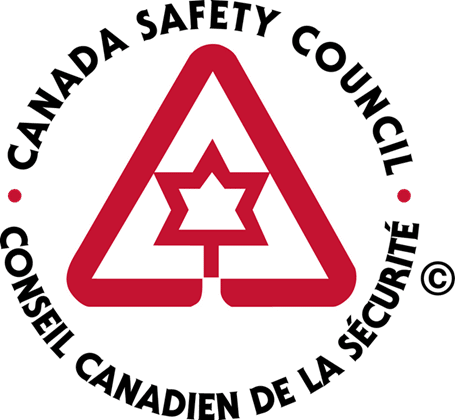Preparing for Hurricane Sandy’s landfall
Effects of Hurricane Sandy are expected throughout parts of central and eastern Canada within the next 24 hours.
The Canada Safety Council strongly recommends that Canadians in affected areas prepare for emergency situations such as extended power outages, flooding or severe wind damage.
Get updated local weather reports often and respond accordingly. Check Environment Canada’s website for weather warnings in your area.
Have an emergency plan for your household, and make sure that everyone knows where to go and who to contact if something goes wrong. Find out more www.getprepared.gc.ca.
Before the storm hits, prepare your surroundings by tying down or removing any loose items such as patio furniture from your deck, yard or balcony. During the storm, seek shelter and stay indoors as much as possible.
Remember to keep your cell phone charged and accessible.
In the event of an emergency, it often takes 72 hours or more for help to arrive. It is important to be prepared to take care of yourself and your family for at least three days.
Your basic emergency kit should include the following (source: Government of Canada):
- Water – at least two litres of water per person per day; include small bottles that can be carried easily in case of an evacuation order
- Food that won’t spoil, such as canned food, energy bars and dried foods (replace food and water once a year)
- Manual can-opener
- Crank or battery-powered flashlight (and extra batteries). Replace batteries once a year.
- Crank, battery-powered radio (and extra batteries) or Weatheradio
- First aid kit
- Extra keys to your car and house
- Some cash in smaller bills, such as $10 bills and change for payphones
- A copy of your emergency plan and contact information
- If applicable, other items such as prescription medication, infant formula, equipment for people with disabilities, or food, water and medication for your pets or service animal (personalize according to your needs)
Recommended additional items
- Two additional litres of water per person per day for cooking and cleaning
- Candles and matches or lighter (place candles in deep, sturdy containers and do not burn unattended)
- Change of clothing and footwear for each household member
- Sleeping bag or warm blanket for each household member
- Toiletries
- Hand sanitizer
- Utensils
- Garbage bags
- Toilet paper
- Water purifying tablets
- Basic tools (hammer, pliers, wrench, screwdrivers, work gloves, dust mask, pocket knife)
- A whistle (in case you need to attract attention)
- Duct tape (to tape up windows, doors, air vents, etc.)
-30-
For more information, please contact:
Catherine Benesch
Communications/Media Program Coordinator, Canada Safety Council
(613) 739-1535 (ext. 228)
